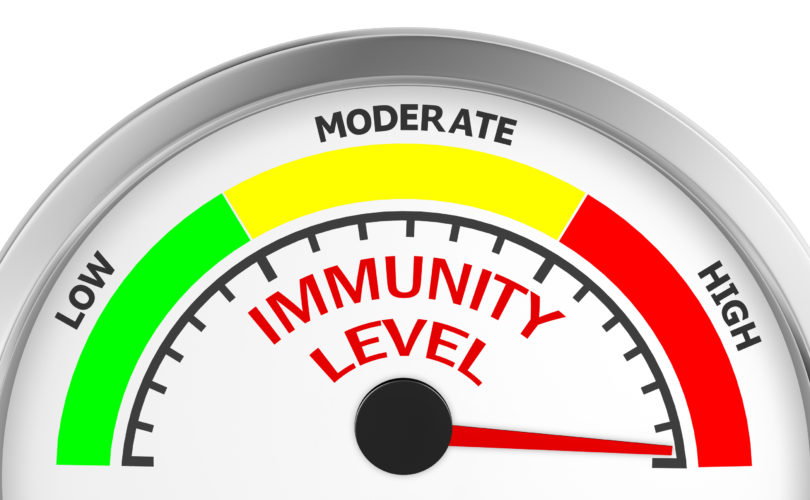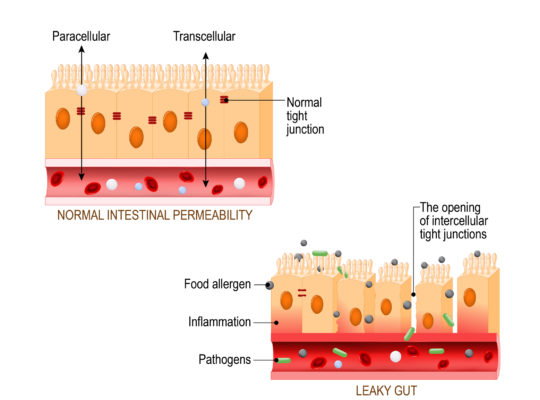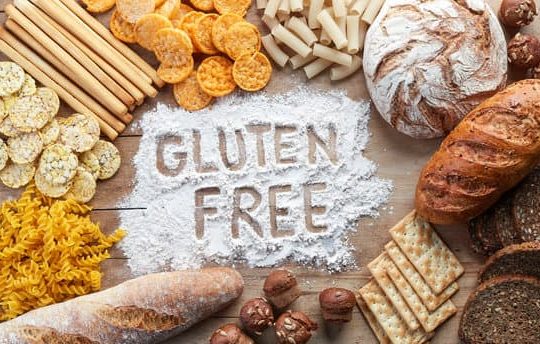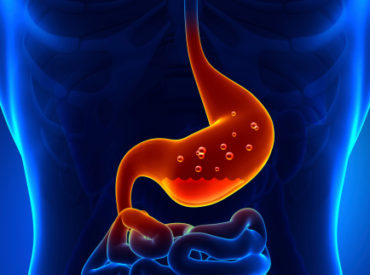With the onset of COVID-19, some people are trying to boost their immune system and one way they are doing that is by focusing on gut health.
How is gut health and immunity related?
Well, approximately 70 percent of our immune cells are located within the walls of our gastrointestinal tract (gut). Beneficial or good bacteria found in this gut-associated lymphoid tissue (GALT) help to communicate to our immune system whether new things entering the body are friend or foe.
Our immune system is tasked with maintaining a balance between reaction and tolerance. A diverse gut microbiome (billions of gut bacteria found in the gut) is crucial for teaching the cells of the immune system that not everything is bad. We want an immune system that is tolerant most of the time and responds appropriately to foreign invaders.
Since balance of bacteria in our gut effects the strength of our immune system, an unbalanced bacterial flora (too many bad bacteria) can cause the immune system to be hypervigilant.
This can lead to leaky gut, an increased inflammatory state which may affect other body systems and increase the risk of obesity, type 1 and type 2 diabetes and other illnesses.
Not only is your microbiome essential for immunity, but it helps us break down food, absorb nutrients, produce essential vitamins, help fight disease, manipulate our mood, and help with brain function. For optimal immunity, detoxification, and nourishment, your gut must function seamlessly. For instance, give them whole, fresh foods and good gut bacteria thrive. However, if you feed them junk, bad bacteria will increase, resulting in leaky gut, toxic overload, and inflammation.
In addition to the foods you eat, the types and amounts of bacteria you are exposed to daily, along with your levels of stress, sleep, physical activity, and genetics all play a part in creating your gut microbiome.
There are several natural ways you can improve your gut health and improve immunity. For starters:
1. Eat Fermented Foods Regularly
Probiotic-rich, fermented foods include kombucha, tempeh, kefir, sauerkraut, kimchi, yogurt, and apple cider vinegar. Ideally you want to consume one or two servings of fermented foods every day. These foods contain beneficial bacteria and can crowd out and fight bad gut bacteria resulting in a healthy, balanced microbiome. They can also boost the diversity of gut flora in your microbiome. Research suggests that having a wide array of microbes in our gut makes our microbiome more capable and resilient. A diverse microbiome can function better than a microbiome with only a few kinds of bacteria because if one microbe is unable to fulfill its function, another is available to step in.
2. Consume Prebiotic-Rich Foods
Prebiotics are the indigestible fibers found in plant-based foods and are a great fuel source for the microbiome. This fiber passes through the digestive system until it reaches the colon. In the colon bacteria break it down into short-chain fatty acids which is a good fuel source for cells in the colon. People who eat a wide variety of plant foods usually have a more diverse gut microbiome. Prebiotics include dandelion greens, onions, garlic, artichokes, Jerusalem artichokes, asparagus, jicama, green bananas, and oatmeal. You can find out more information about prebiotic foods here.
3. Take a Daily Probiotic Supplement
While there are many options available, it is important to consume probiotic strains that are in a slow-release capsule. This ensure that the live cultures can survive the acidity of your stomach and reach your intestines before being released. You can learn more about good types of probiotics here. The microbes that live in our gut are not permanent residents – they come and go over time, so it is important to replace them regularly.
4. Avoid “Gut-Unfriendly” Foods
As I mentioned earlier, feed your gut junk foods and it will increase your bad bacteria and disrupt microbiome balance. When the microbes in our gut are out of balance, this imbalance has been associated with a range of conditions, including inflammatory bowel syndrome, chronic fatigue syndrome and colitis.
These gut-disrupting foods include:
- Refined vegetable oils that are high in Omega-6 fatty acids (like canola, corn, and soybean oils)
- Added sugars (check your food labels for: brown sugar, corn sweetener, corn syrup, dextrose, fructose, glucose, high-fructose corn syrup, honey, lactose, malt syrup, maltose, molasses, raw sugar, and sucrose). They can be found in most packaged snacks, breads, condiments, canned items, cereals, etc.)
- Trans fats/hydrogenated fats (used in packaged/processed products and often to fry foods)
- Refined carbohydrate and grain products. Refined carbohydrates include sugars and refined grains that have been stripped of all bran, fiber, and nutrients. These include white bread, pizza dough, pasta, pastries, white flour, white rice, sweet desserts, and many breakfast cereals.
- Pasteurized and sweetened dairy products. Dairy is a common allergen and can not only disrupt the microbiome but can lead to inflammation.
- Conventional meat, poultry, and eggs (high in omega-6s due to feeding the animals a poor diet)
5. Manage Stress
Stress disrupts digestion and compromises healthy gut function. Over time, stress can lead to more serious gut conditions such as IBS. When gut health is compromised so is immunity.
There are many ways you can mitigate stress. Exercise, walks in nature, getting recuperative sleep, meditation, reading, yoga and journaling are all good examples, but find one that resonates with you.
In some cases, we need additional support like adaptogenic herbs. I am partial to Ashwagandha powder which I add to hot water. Ashwagandha has been shown to reduce stress and anxiety in both animal and human studies.
So, if you want to take control of your immunity and your health overall—start with your gut. Gut health literally affects your entire body.







